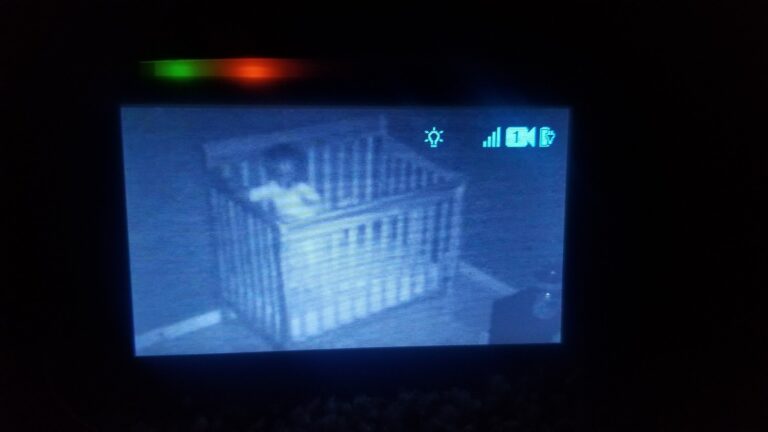Understanding Baby Grunting and Leg Pulling at Night In Sleep
As a parent, you may have noticed your baby making strange noises and movements while sleeping, including grunting and leg pulling. While these behaviors can be unsettling, they are actually quite common among babies and are usually nothing to worry about. However, it’s important to understand why your baby is grunting and pulling their legs up in sleep to ensure their comfort and well-being.
There are several reasons why babies grunt and pull their legs up while sleeping. One possible cause is sleep discomfort, which can stem from issues such as gas, constipation, or acid reflux. Additionally, babies have underdeveloped respiratory and digestive systems, which can lead to changes in breathing patterns and vocalizations.
While these sleep sounds and movements are typically normal, it’s essential to pay attention to your baby’s overall behavior and any signs of distress. By understanding what is normal and what might require further attention, you can better support your baby’s sleep and help them find the rest they need.
Key Takeaways:
- It’s common for babies to grunt and pull their legs up while sleeping.
- These behaviors are often associated with sleep discomfort or the development of their respiratory and digestive systems.
- Monitor your baby’s overall behavior and look for signs of distress.
- Seek medical advice if you notice any concerning symptoms or have any worries about your baby’s health.
- Establishing good sleep habits and creating a comfortable sleeping environment can contribute to better sleep quality.
Why is my baby making sounds while sleeping?
Babies make a variety of sounds while sleeping due to different biological factors and developmental processes. Understanding the causes of baby grunting and leg pulling, baby sleep discomfort, and baby sleep patterns can help you better understand and support your baby’s sleep needs.
Up until 3 to 4 months old, babies primarily breathe through their noses, which can sometimes result in congested-related sleep noises. Their respiratory and digestive systems are still developing, leading to changes in breathing patterns and vocalizations. It’s not uncommon for infants to learn how to relax their pelvic floor and use their tummy muscles during bowel movements, which can produce grunting sounds during sleep. Additionally, newborns cycle through sleep stages every 45 to 50 minutes, causing periods of increased movement and noise.
While these sleep sounds may be concerning to parents, they are generally a normal part of a baby’s sleep patterns. It’s important to observe your baby’s overall behavior, comfort, and any signs of distress during sleep to ensure their well-being.
Baby Grunting and Other Typical Newborn Sleep Sounds

While baby grunting and leg pulling in sleep can be concerning for parents, it’s important to understand that babies make a variety of sounds while sleeping. These sounds are often a normal part of their sleep patterns and development. Understanding the different sleep sounds your baby may make can help you differentiate between typical and potentially concerning behaviors.
Some typical sleep sounds that babies make include:
- Whistling
- Snorting
- Gurgling
- Hiccupping
- Whimpering
- Rumbling
- Burping
- Passing gas
- Lip-smacking
- Crying
These sounds can be attributed to various factors such as narrow nasal passages, congestion, saliva accumulation, digestive processes, hunger, and dream feeding. It’s important to remember that while these sounds can be normal, parents should observe their baby’s overall behavior, comfort, and any signs of distress.
Visualize the table below for a better understanding of common sleep sounds and their associations:
Understanding the causes of these sleep sounds can help parents better support their baby’s sleep and overall well-being. In the upcoming sections, we will explore the reasons behind baby grunting and leg pulling while sleeping and provide solutions to common newborn sleep problems.
Breathing Sounds: Typical Sounds Newborns Make
Newborns have softer and narrower airways, leading to louder breathing sounds while sleeping. Their breathing rate is higher than that of older children and adults, and it can be irregular. Periodic breathing, which involves brief pauses in breathing during active REM sleep, is a normal occurrence. Transient rapid breathing may result from fluid buildup in the lungs. Additionally, laryngomalacia, a common cause of noisy breathing, occurs when babies have floppy larynx tissue. Parents should monitor breathing sounds and seek medical advice if there are concerns, such as fast breathing, rhythmic grunting, or whistling sounds.
When to Worry About Baby Grunting and Other Sleep Sounds
While most baby grunting and sleep sounds are normal, there are instances when they may indicate respiratory issues or illnesses. It’s important to be aware of additional symptoms that could signal potential concerns with your baby’s respiratory health.
If you notice any of the following symptoms along with baby grunting and other sleep sounds, it’s advisable to seek guidance from a healthcare provider:
- Fast breathing, characterized by rapid and shallow breaths
- Rhythmic grunting with flared nostrils
- Extra-long exhales or wheezing
- Whistling or high-pitched sounds when breathing out
These symptoms could indicate various respiratory conditions, such as respiratory syncytial virus (RSV), bronchiolitis, respiratory distress syndrome, aspiration, or other infections. While it’s essential to stay vigilant, it’s important to remember that not all instances of grunting and sleep sounds are cause for alarm.
In cases where you observe concerning sleep sounds, it’s always wise to consult with a healthcare professional who can evaluate your baby’s specific situation and provide appropriate guidance. Remember, they are the best source of advice and can help determine if further medical attention is needed.
When Typical Baby Grunting and Other Sleep Sounds Keep You Awake

It is common for parents to be disturbed by their baby’s sleep sounds, leading to disrupted sleep for both the baby and the parents. The sleep grunting of a baby and other sleep sounds can be a source of concern and anxiety, causing sleep issues for everyone involved. If you find yourself struggling with this situation, there are some strategies you can try to help create a more peaceful sleep environment for your little one.
Using White Noise Machines
One effective way to mask the sounds of your baby’s sleep grunting and other noises is by using white noise machines. These devices produce a constant and soothing sound that can help drown out the disruptive sounds, creating a more peaceful sleep environment for both you and your baby.
Room-Sharing: Recommendations by the American Academy of Pediatrics
While it may be tempting to move your baby to their own room in an attempt to escape the noisy sleep sounds, it is important to note that the American Academy of Pediatrics recommends room-sharing for at least the first six months of your baby’s life to reduce the risk of Sudden Infant Death Syndrome (SIDS).
“Room-sharing decreases the risk of SIDS and suffocation and may make breastfeeding easier.”
Establishing Good Sleep Habits
As babies grow, their sleep sounds tend to quiet down. Establishing good sleep habits can contribute to better sleep quality for your baby. Consider the following tips:
- Optimize feeding positions and make sure your baby is burped properly before sleep.
- Engage in leg exercises to help your baby release any discomfort or gas.
- Try dream feeding to promote longer stretches of sleep.
- Learn to understand your baby’s sleep cues and establish a consistent bedtime routine.
By implementing these practices, you can help your baby develop healthier sleep patterns, reducing the frequency and intensity of sleep sounds like grunting.
Remember, every baby is unique, and their sleep patterns and sounds may vary. However, if you are concerned about your baby’s sleep grunting or other sleep sounds impacting their overall well-being, it is always recommended to consult with your pediatrician for further guidance.
When do Babies’ Sleep Sounds Stop?
Baby sleep sounds, such as grunting and squirming, tend to decrease after a few months as a baby’s lungs and digestive system mature. Typically, around 3 to 6 months old, babies start spending more time in quieter deep sleep and less time in noisy REM sleep.
To help babies transition to quiet and restful sleep, it’s important to support proper feeding practices, burping, leg exercises, dream feeding, and understand their sleep cues. Establishing a relaxing bedtime routine can also contribute to better sleep patterns for babies.
However, it’s essential to note that the exact timing of when sleep sounds stop can vary for each individual baby. Some babies may continue to make sleep sounds for a longer period, while others may naturally transition to quieter sleep sooner.
Each baby’s sleep journey is unique, and as parents, it’s important to monitor their baby’s sleep behaviors and respond accordingly to ensure their comfort and well-being.
Is It Normal for Newborns to Grunt and Squirm While Sleeping?
It is completely normal for newborns to grunt and squirm while sleeping. These behaviors are often a result of the baby’s adjusting to their body and learning various bodily functions. Babies may grunt and squirm due to issues with bowel movements, acid reflux, nasal or chest congestion, oxygen intake, gas, or hunger. As long as the baby shows no significant distress and their overall health is not affected, parents can rest assured that these actions are part of their baby’s development.
During sleep, babies are entering different sleep stages and transitioning through various states of consciousness. As their bodies grow and adapt, they may make movements and sounds to release discomfort or settle into a more comfortable position. Grunting and squirming can also be a way for babies to communicate their needs or address normal bodily functions.
You’ve probably noticed your baby’s sleep patterns and behaviors changing as they grow. It’s important to understand that these changes are normal and part of their development.
In some cases, newborns may experience temporary discomfort during sleep, leading to grunting and fussiness. This discomfort can be caused by factors such as gas, indigestion, or mild reflux. However, if your baby continues to show distress during sleep or their grunting is accompanied by other concerning symptoms, it is advisable to consult with a healthcare professional to rule out any underlying issues.
Creating a calm and soothing sleep environment can also help reduce any potential discomfort or restlessness your baby may experience. Employing techniques such as swaddling, using white noise machines, and establishing a consistent bedtime routine can contribute to better sleep quality for both you and your baby.
Dealing with Baby Sleep Discomfort:
- Ensure your baby is in a comfortable sleep position, with their head slightly elevated to alleviate potential nasal congestion
- Monitor your baby’s feeding routine and ensure they are not hungry or overfull before bedtime
- Address any signs of discomfort by gently massaging your baby’s tummy and providing soothing leg movements to aid digestion
- Consult with your healthcare provider if you suspect your baby may have acid reflux or other digestive issues
Causes of Grunting and Squirming
Grunting and squirming in newborns can be attributed to various factors. Understanding the specific cause behind these behaviors can help address any potential discomfort or issues your baby may be experiencing.
Difficulties with bowel movements can lead to grunting and squirming. As your baby’s digestive system develops, they may experience challenges in passing stool, causing discomfort during sleep.
Acid reflux is another common cause of grunting and squirming. When stomach acid flows back into the esophagus, it can irritate your baby’s throat, leading to discomfort and movement.
Blocked nasal passages can impact your baby’s ability to breathe freely, causing them to grunt and squirm. Nasal congestion, often due to mucus accumulation, can disrupt sleep and contribute to these behaviors.
Proper oxygen intake is vital for your baby’s well-being. Grunting and squirming may occur if your baby is having difficulty breathing or if their airways are partially obstructed.
Trouble passing gas can also lead to grunting and squirming. As your baby’s digestive system matures, they may experience gas buildup, causing discomfort during sleep.
Hunger can be a significant factor in your baby’s grunting and squirming. If your baby is not adequately fed or if they experience hunger pangs during sleep, it can manifest as restlessness and movement.
To address these causes of grunting and squirming, consider implementing strategies such as gentle leg movements and tummy massages to alleviate bowel movement difficulties. Adjusting feeding routines and holding your baby upright after meals can help manage acid reflux. Clearing nasal passages with saline solution or a suction bulb can relieve congestion. Ensuring sufficient feeds during the night can help satisfy hunger triggers. Additionally, create a comfortable sleep environment with a firm mattress, monitor the room temperature, and use white noise to promote better sleep for your baby.
Remember, each baby is unique, and the duration of grunting and squirming may vary. If these behaviors persist or worsen over time, it is advisable to consult a doctor for further evaluation. Trust your instincts and reach out to a healthcare provider whenever you have concerns about your baby’s sleep discomfort or overall well-being.
Solutions for Grunting and Squirming Babies
When your baby is constantly grunting and squirming during sleep, it can be concerning. Fortunately, there are several solutions you can try to help alleviate these discomforts and promote better sleep for your little one.
Gentle Movements and Massages
For babies experiencing difficulties with bowel movements, gentle leg movements and tummy massages can provide relief. You can gently move your baby’s legs in a bicycling motion or massage their tummy in a circular motion to promote digestion and alleviate any discomfort.
Addressing Acid Reflux
If acid reflux is a contributing factor to your baby’s grunting and squirming, adjustments to feeding routines can help. Try feeding your baby smaller portions more frequently and holding them upright after meals to minimize reflux and support better digestion.
Clearing Nasal Passages
Blocked nasal passages can make it harder for your baby to breathe comfortably, leading to grunting and restlessness. Using saline solution or a suction bulb can help clear the nasal passages and alleviate congestion, making it easier for your baby to breathe during sleep.
Ensuring Sufficient Feeds
If hunger triggers grunting in your baby, ensuring they have sufficient feeds during the night can be beneficial. Consider adjusting feeding schedules or incorporating dream feeds to help keep your little one satiated and prevent hunger-related sleep disturbances.
Creating a Comfortable Sleeping Environment
The sleeping environment plays a crucial role in promoting restful sleep for your baby. Ensure you have a firm mattress that supports proper alignment and minimizes discomfort. Monitor the room temperature to ensure it’s neither too hot nor too cold. Consider using white noise to create a soothing background sound that can drown out any surrounding disturbances.
Developing Consistent Sleep Habits
Establishing consistent sleep patterns and routines can greatly contribute to better sleep quality for your baby. Pay attention to their sleep cues and establish a calming bedtime routine that helps prepare them for sleep. This may include activities such as reading a book, singing lullabies, or gentle rocking before laying them down to sleep.
With these solutions and a little patience, you can help alleviate grunting and squirming in your baby, creating a more peaceful and restful sleep environment for both of you.
When to Visit a Doctor?
In most cases, grunting and squirming in newborns are normal behaviors. However, there are instances when it is advisable to seek medical advice. If your baby appears to be in pain or distress, grunts with every breath, has blue lips, is experiencing fever or weight loss, or shows signs of fatigue, it is important to contact a doctor.
As a parent, you should trust your instincts and consult with a healthcare provider whenever you have concerns about your baby’s health and well-being. Remember, it’s always better to seek professional guidance to ensure your baby’s comfort and proper care.
If you notice any of the mentioned symptoms, don’t hesitate to schedule an appointment with your pediatrician. They will be able to assess your baby’s condition, provide appropriate guidance, and address any potential issues that may be causing sleep discomfort or newborn sleep problems.
Does the Grunting Stop?
The duration of grunting and squirming in newborns can vary. While it is common for these behaviors to decrease after a few weeks, the timing can be different for each baby. If your baby’s grunting persists or worsens over time, it is recommended to consult a doctor for further evaluation. Every baby is unique, and some may take longer to adjust to their bodily functions and adopt quieter sleep patterns. It’s important for parents to continue monitoring their baby’s sleep behaviors and seek professional guidance as needed to ensure their baby’s comfort and well-being.
Throughout the first few months, babies go through significant development and adjustments. As they grow, their sleep patterns tend to change, and the grunting and leg pulling may gradually subside. However, if you have any concerns or if the grunting persists beyond what you consider normal, it’s essential to consult a healthcare provider for a proper assessment.
Remember, as a parent, it’s natural to worry about your baby’s well-being. Trust your instincts and seek medical advice if you have any doubts or concerns. Your healthcare provider can provide appropriate guidance and support, giving you peace of mind and helping ensure your baby’s sleep is as comfortable as possible.
FAQ
Why is my baby making sounds while sleeping?
Babies make a variety of sounds while sleeping due to different biological factors and developmental processes. These sounds are often normal and part of the sleep cycle. However, they can sometimes indicate underlying issues or discomfort.
What are some typical sleep sounds that babies make?
Babies may make sounds such as whistling, snorting, gurgling, hiccupping, whimpering, rumbling, burping, passing gas, lip-smacking, and crying while sleeping. These sounds can be associated with factors like congestion, saliva accumulation, digestive processes, hunger, and dream feeding.
Why do newborns have louder breathing sounds while sleeping?
Newborns have softer and narrower airways, leading to louder breathing sounds while sleeping. Their breathing rate is higher than that of older children and adults, and it can be irregular. Periodic breathing, which involves brief pauses in breathing during active REM sleep, is also a normal occurrence.
When should I worry about baby grunting and other sleep sounds?
While most baby grunting and sleep sounds are normal, it is advisable to seek medical advice if the baby exhibits additional symptoms such as fast breathing, rhythmic grunting with flared nostrils, extra-long exhales, or whistling sounds when breathing out. These symptoms could be signs of respiratory issues or illnesses.
What can I do to alleviate grunting and squirming in my baby?
There are several solutions parents can try to help alleviate grunting and squirming in babies. These include gentle leg movements, tummy massages, warm baths for bowel movements difficulties, adjusting feeding routines and holding the baby upright after meals for acid reflux, clearing nasal passages with saline solution or a suction bulb for congestion, and ensuring sufficient feeds during the night if hunger triggers grunting.
When should I visit a doctor regarding my baby’s sleep sounds?
It is advisable to visit a doctor if the baby appears to be in pain or distress, grunts with every breath, has blue lips, experiences fever or weight loss, or shows signs of fatigue. Trusting your instincts and seeking professional guidance whenever you have concerns about your baby’s health is important.
When do baby sleep sounds stop?
Baby sleep sounds tend to decrease after a few months as a baby’s lungs and digestive system mature. Around 3 to 6 months old, babies start spending more time in quieter deep sleep and less time in noisy REM sleep.
Is it normal for newborns to grunt and squirm while sleeping?
It is completely normal for newborns to grunt and squirm while sleeping. These behaviors are often a result of the baby adjusting to their body and learning various bodily functions.
What are the causes of grunting and squirming in babies?
Grunting and squirming in newborns can be caused by various factors, including difficulties with bowel movements, acid reflux, blocked nasal passages, challenges with proper oxygen intake, trouble passing gas, or hunger.
Does the grunting stop?
The duration of grunting and squirming in newborns can vary. It is common for these behaviors to decrease after a few weeks, but the timing can be different for each baby. Some babies may take longer to adjust to their bodily functions and adopt quieter sleep patterns.










